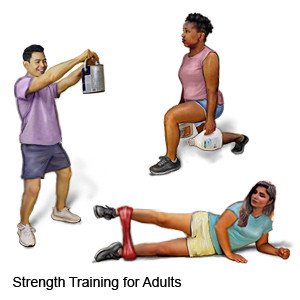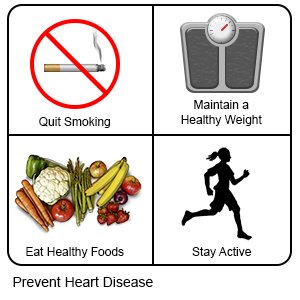Hyperlipidemia
Medically reviewed by Drugs.com. Last updated on Aug 4, 2025.
What is hyperlipidemia?
Hyperlipidemia is a high level of lipids (fats) in your blood. These lipids include cholesterol or triglycerides. Lipids are made by your body. They also come from the foods you eat. Your body needs lipids to work properly, but high levels increase your risk for heart disease, heart attack, and stroke.
What increases my risk for hyperlipidemia?
- Family history of high lipid levels
- Diet high in saturated fats, cholesterol, or calories
- High alcohol intake or smoking
- Lack of regular physical activity
- Medical conditions such as hypothyroidism, obesity, or type 2 diabetes
- Certain medicines, such as blood pressure medicines, hormones, and steroids
Related medications
How is hyperlipidemia managed and treated?
Your healthcare provider may first recommend that you make lifestyle changes to help decrease your lipid levels. Your provider may recommend you work with a team to manage hyperlipidemia. The team may include medical experts such as a dietitian, an exercise or physical therapist, and a behavior therapist. Your family members may be included in helping you create lifestyle changes. You may also need to take medicine to lower your lipid levels. Some of the lifestyle changes you may need to make include the following:
- Maintain a healthy weight. Ask your healthcare provider what a healthy weight is for you. Ask your provider to help you create a weight loss plan, if needed. Weight loss can decrease your cholesterol and triglyceride levels.
- Be physically active throughout the day. Physical activity, such as exercise, lowers your cholesterol levels and helps you maintain a healthy weight. Get 30 minutes or more of aerobic exercise 4 to 6 days each week. You can split your exercise into three 10-minute workouts instead of 30 minutes at one time. Examples of aerobic exercises include walking briskly, swimming, or riding a bike. Work with your provider to plan the best exercise program for you. Also include strength training at least 2 times each week. Your healthcare providers can help you create a physical activity plan.


- Do not smoke. Nicotine and other chemicals in cigarettes and cigars can increase your risk for a heart attack and stroke. Ask your provider for information if you currently smoke and need help to quit. E-cigarettes or smokeless tobacco still contain nicotine. Talk to your provider before you use these products.

- Eat heart-healthy foods. A dietitian or your provider can give you more information on low-sodium plans or the DASH (Dietary Approaches to Stop Hypertension) eating plan. The DASH plan is low in sodium, processed sugar, unhealthy fats, and total fat. It is high in potassium, calcium, and fiber. These can be found in vegetables, fruit, and whole-grain foods. The following are ways to get more heart-healthy foods:

- Decrease the total amount of fat you eat. Choose lean meats, fat-free or 1% fat milk, and low-fat dairy products, such as yogurt and cheese. Limit or do not eat red meat. Red meats are high in fat and cholesterol.
- Replace unhealthy fats with healthy fats. Unhealthy fats include saturated fat, trans fat, and cholesterol. Choose soft margarines that are low in saturated fat and have little or no trans fat. Monounsaturated fats are healthy fats. These are found in olive oil, canola oil, avocado, and nuts. Polyunsaturated fats are also healthy. These are found in fish, flaxseed, walnuts, and soybeans.
- Eat 5 or more servings of fruits and vegetables every day. They are low in calories and fat, and a good source of essential vitamins. Include dark green, red, and orange vegetables. Examples include spinach, kale, broccoli, and carrots.
- Eat foods high in fiber. Fiber can help lower your cholesterol levels. Choose whole grain, high-fiber foods. Good choices include whole-wheat breads or cereals, beans, peas, fruits, and vegetables.

- Limit sodium (salt) as directed. Too much sodium can affect your fluid balance and blood pressure. Your provider will tell you how much sodium and potassium are safe for you to have in a day. Your provider may recommend that you limit sodium to 2,300 mg a day. Your provider or a dietitian can help you find ways to limit sodium. For example, if you add salt while you cook, do not add more salt at the table. Check labels to find low-sodium or no-salt-added foods. Some low-sodium foods use potassium salts for flavor. Too much potassium can also cause health problems.

- Ask your provider if it is okay for you to drink alcohol. Alcohol can increase your cholesterol and triglyceride levels. Your provider can tell you how many drinks are okay to have within 24 hours and within 1 week. A drink of alcohol is 12 ounces of beer, 5 ounces of wine, or 1½ ounces of liquor.
Treatment options
The following list of medications are related to or used in the treatment of this condition.
Call your local emergency number (911 in the US) or have someone call if:
- You have any of the following signs of a heart attack:
- Squeezing, pressure, or pain in your chest
- You may also have any of the following:
- Discomfort or pain in your back, neck, jaw, stomach, or arm
- Shortness of breath
- Nausea or vomiting
- Lightheadedness or a sudden cold sweat
- You have any of the following signs of a stroke:
- Numbness or drooping on one side of your face
- Weakness in an arm or leg
- Confusion or difficulty speaking
- Dizziness, a severe headache, or vision loss
When should I call my doctor?
- You have questions or concerns about your condition or care.
Care Agreement
You have the right to help plan your care. Learn about your health condition and how it may be treated. Discuss treatment options with your healthcare providers to decide what care you want to receive. You always have the right to refuse treatment. The above information is an educational aid only. It is not intended as medical advice for individual conditions or treatments. Talk to your doctor, nurse or pharmacist before following any medical regimen to see if it is safe and effective for you.© Copyright Merative 2025 Information is for End User's use only and may not be sold, redistributed or otherwise used for commercial purposes.
Learn more about Hyperlipidemia
- Atorvastatin (Lipitor): Top 12 Drug Facts You Need to Know
- Cholesterol Medications and Alcohol: Can You Mix Them?
- FDA-Approved Weight Loss Drugs: Can They Help You?
- Statins for high cholesterol: Are the benefits worth the risk?
- Which Drugs Cause Weight Gain?
Treatment options
Symptoms and treatments
Medicine.com guides (external)
Further information
Always consult your healthcare provider to ensure the information displayed on this page applies to your personal circumstances.
